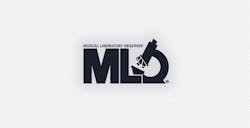Software piracy and the laboratory
Q: I have been hearing a lot about
software piracy in the workplace, even radio ads encouraging businesses to update their licenses and encouraging people to report software piracy. How important is this issue to the lab?
A: Any work environment that uses
computers and employs human beings is at risk for software piracy, especially if there is no clear understanding of the underlying law and good policy in place. Youre right software developers are becoming increasingly worried by the unauthorized use of their products and have taken steps to reduce infringement by encouraging whistleblowers, and by making changes that limit the ability of a purchaser to duplicate or re-use software.
Software isnt a tangible item, like a car or laboratory instrument. Such things, once purchased, are the property of the owner, who can do with them as he pleases: use them, rent them out, take them apart or reconfigure them. Computer software, on the other hand, is really a license to use a copyrighted intellectual property that happens to come encoded on a computer disc or CD. In general, licenses give the buyer the right to load the software onto one computer only, and to make a single back-up copy for archival purposes. Loading the software onto multiple computers without purchasing individual licenses for each one (softloading) is a violation of the copyright laws and a violation of the license.
Employees or independent contractors (such as outside computer technicians) may be tempted to pirate expensive software to their home computers, or to bring in outside programs for office use. Both should be clearly discouraged by well-publicized and well-enforced policy respecting software copyrights (check the Better Business Bureau website for a sample policy:
www.cbbb.org/features/samplepolicy.asp.
In addition, licenses should be checked and verified on a regular basis to insure that no unauthorized software is installed and no unauthorized use is occurring. Hard copies of the software should be kept secured and not generally available, except to those with a legitimate need to access them. Downloads from the Internet should be discouraged, in part to prevent piracy, but also because of the increased risk of virus infection.
Types of piracy
There are five common types of software piracy. Understanding each will help users avoid problems associated with illegal software.
End-user piracy:
This occurs when a company employee reproduces copies of software without authorization. End-user piracy can take the following forms:
- Using one licensed copy to install a program on multiple computers.
- Copying disks for installation and distribution.
- Taking advantage of upgrade offers without having a legal copy of the version to be upgraded.
- Acquiring academic or other restricted or non-retail software without a license for commercial use.
- Swapping disks in or outside the workplace.
Client-server overuse:
This type of piracy occurs when too many employees on a network are using a central copy of a program at the same time. If you have a local-area network and install programs on the server for several people to use, you have to be sure your license entitles you to do so. If you have more users than allowed by the license, thats overuse.
Internet piracy:
This occurs when software is downloaded from the Internet. The same purchasing rules should apply to online software purchase as for those bought in traditional ways. Internet piracy can take the following forms:
- Pirate websites that make software available for free download or in exchange for uploaded programs.
- Internet auction sites that offer counterfeit, out-of-channel, infringing copyright software.
- Peer-to-peer networks that enable unauthorized transfer of copyrighted programs.
Hard-disk loading:
This occurs when a business that sells new computers loads illegal copies of software on the hard disks to make the purchase of the machines more attractive. The same concerns and issues apply to Value Added Resellers (VAR) that sell or install new software on computers in the workplace.
Software counterfeiting:
This type of piracy is the illegal duplication and sale of copyrighted material with the intent of directly imitating the copyrighted product. In the case of packaged software, it is common to find counterfeit copies of the CDs or diskettes incorporating the software programs, as well as related packaging, manuals, license agreements, labels, registration cards and security features.
Courtesy of the Business Software Alliance,
2000-2003 www.bsa.org/usa/antipiracy/
Barbara Harty-Golder is a pathologist-attorney in Sarasota, FL. She directs the clinical laboratory at Health South Rehabilitation Hospital in Sarasota, and maintains a law practice with a special interest in medical law. She writes and lectures extensively on healthcare law, risk management, and human resources management.
March 2003: Vol. 35, No. 3
© 2003 Nelson Publishing, Inc. All rights reserved.




